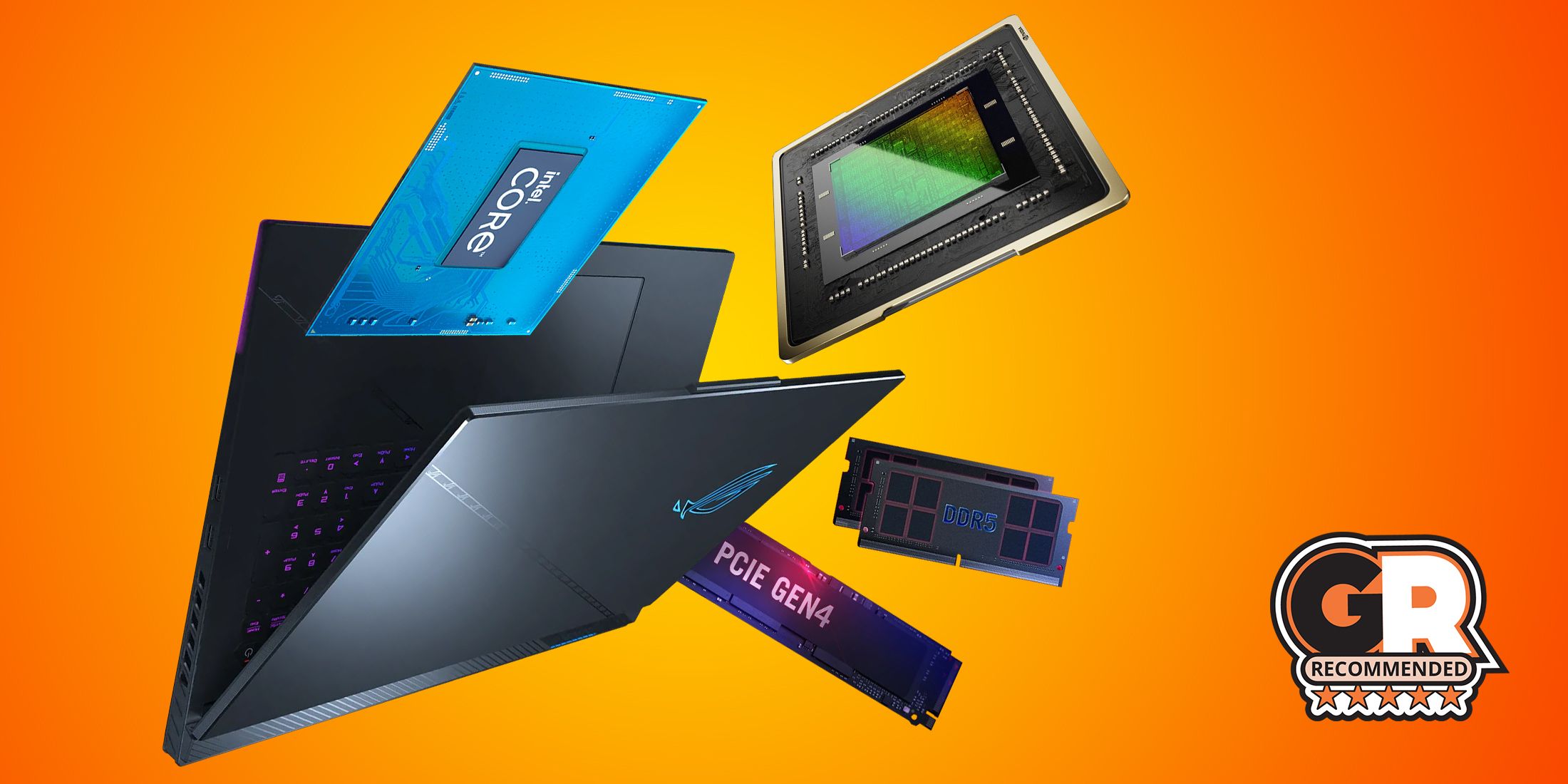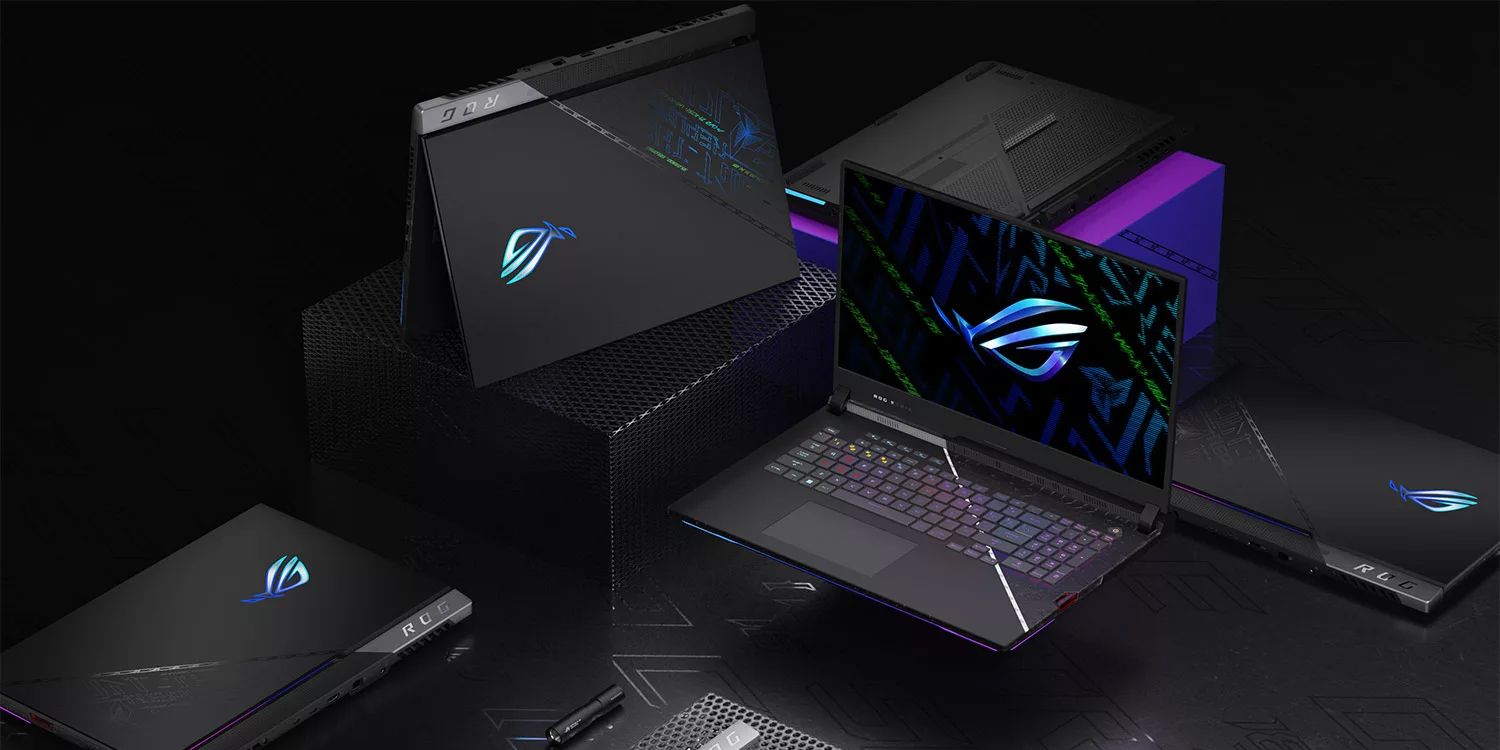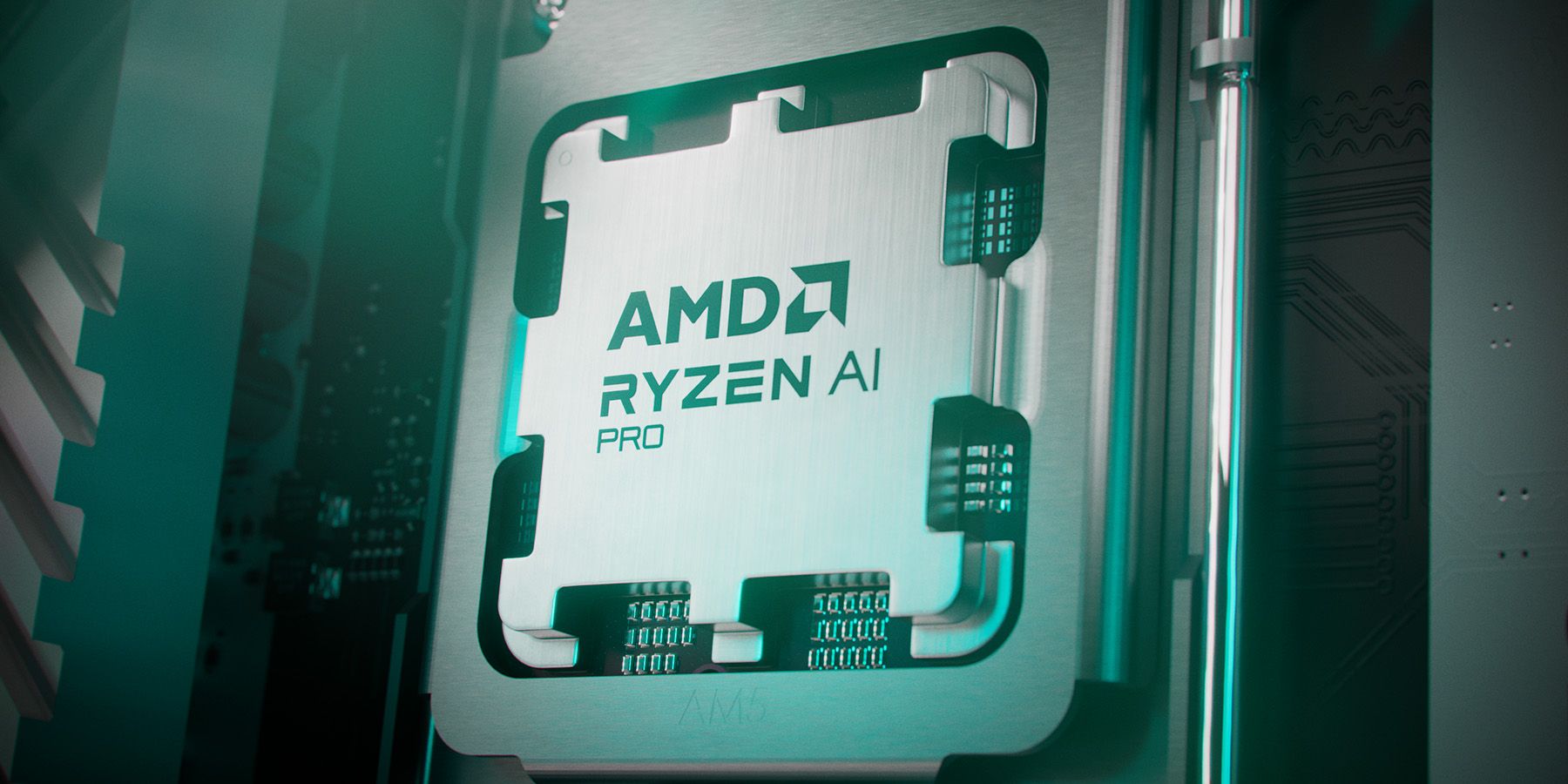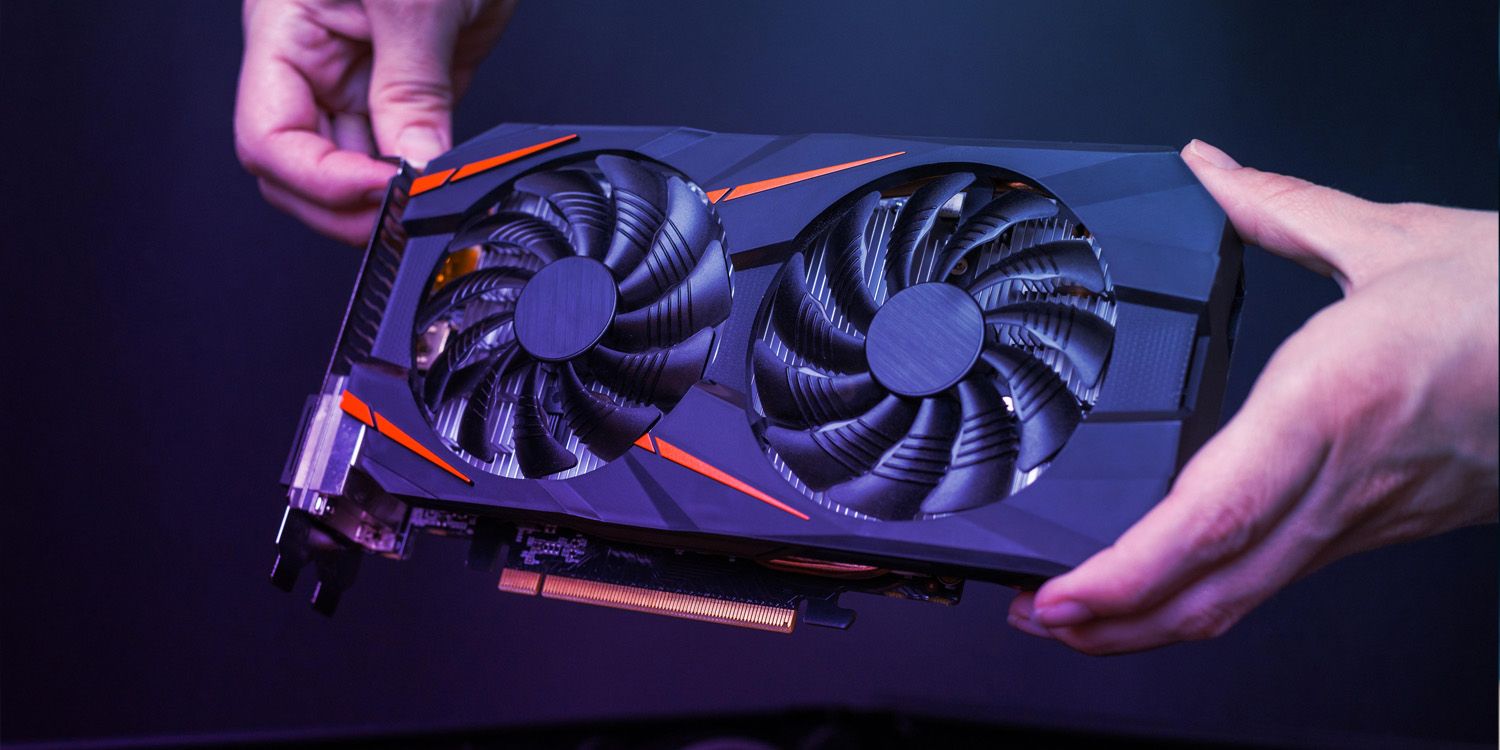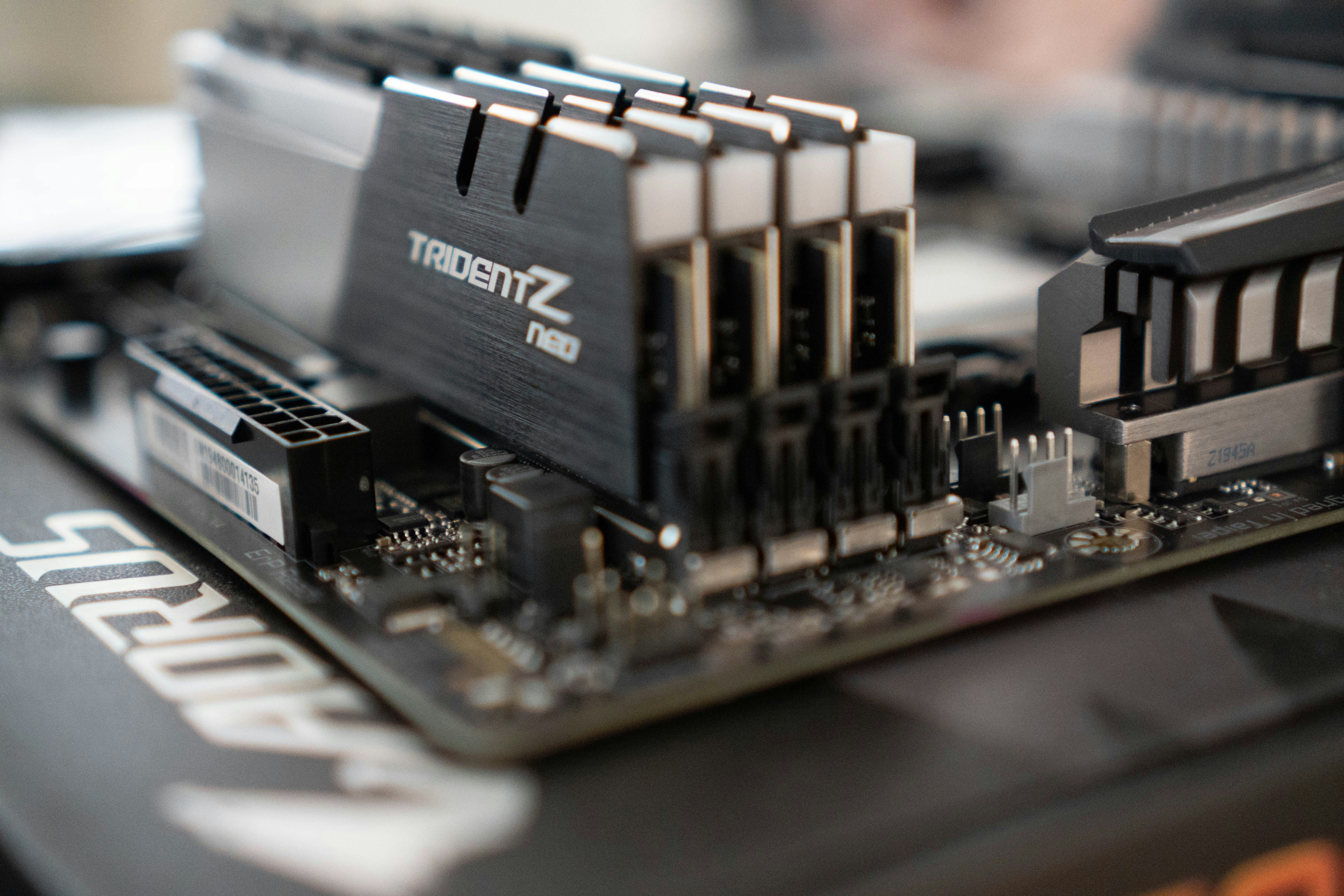Running modern titles built on advanced game engines like Unreal Engine has made it difficult for decade-old gaming systems to keep up with users' expectations. Every year with the launch of newer and more intense titles, the bar for the minimum specifications for a gaming laptop or PC increases. This may cause confusion as the lack of awareness about the requirements of the upcoming games may result in a lot of users buying the wrong configuration.

The Best Gaming Laptops for 2024
The best gaming laptop for you will come down to budget, expected performance, and workload. Let's dive in and find your new gaming laptop.
While it is equally important to understand what specs you should be looking for in a PC or a laptop, the latter generally falls in a more complicated zone as the laptop hardware variant is significantly inferior to the desktop one. This is why, even though a laptop may claim to have a GPU like RTX 4090, in reality, it's far slower than the desktop RTX 4090 GPU.
Suppose you are a gamer who travels a lot and wants something that is highly portable and can keep up with the demands of the upcoming titles. In that case, we are going to explain everything in detail on what specifications you should be opting for in a laptop at the minimum.
What Hardware Should You Look for When Considering a Laptop for Purchase?
A laptop is built with various components and parts, but not every part is responsible for the laptop's performance. When you identify the components that actually matter in gaming performance, it becomes easier to choose a better gaming laptop.
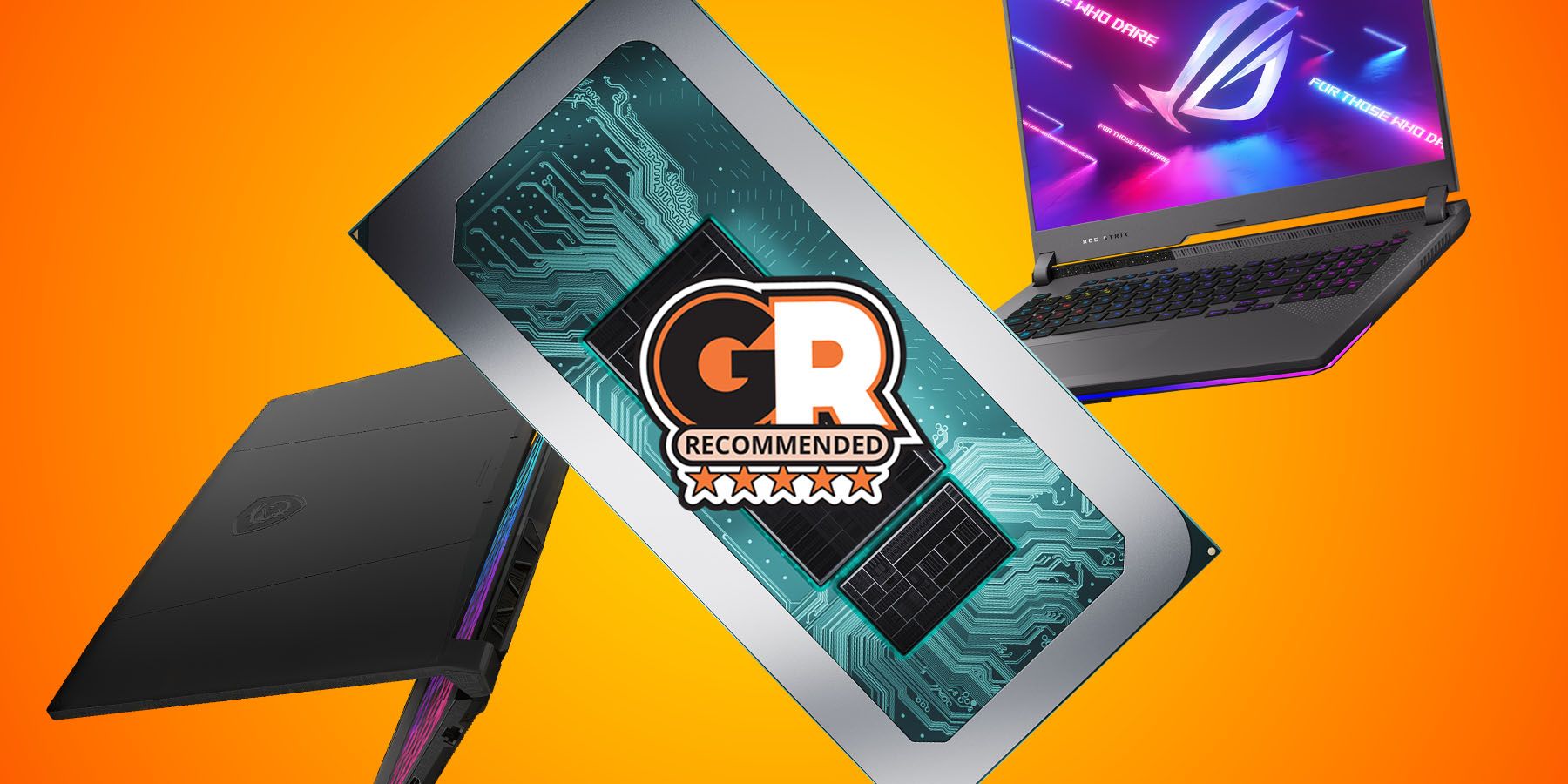
How to Choose A Laptop with The Best CPU in 2024
A step by step guide on how to find a laptop with the best CPU for any user's needs.
The components that affect performance reside inside a laptop's chassis, generally underneath the keyboard. There is a custom motherboard present inside a laptop, which varies from model to model and accommodates other components and peripherals. The components you should look for are:
1. CPU/Processor
2. GPU/Graphics card
3. System RAM
4. Storage
The first three components play a direct role in the performance of a laptop, but storage also matters in various ways. As for other parts like the keyboard, trackpad, connectivity ports, and display, they facilitate and make using the laptop more convenient. Therefore, we are going to dive into those areas later.
The CPU
Anything and everything you see on your display is because a small chip with integrated circuitry executes all the small and big processes. The CPU does various calculations and has several properties or characteristics that make it slower or faster.
While the CPU isn't solely responsible for running a game at a high frame rate, limiting its power will result in a bottleneck. The CPU is, however, pretty active in executing background tasks as well and helps speed up the opening of apps and crunching numbers, things that no other component can do.
For gaming, choosing a CPU with at least four cores, with or without hyperthreading, is recommended. This is the bare minimum for modern gaming requirements. However, choosing from the latest generation is as crucial as choosing the best specs. A decade-old quad-core CPU won't be as good as the quad-core CPUs we have now from the latest-gen families.

The Best Budget CPUs for Gaming for 2024
Here are some of the best gaming CPUs that can be bought without breaking the bank.
Both Intel and AMD have Power-Efficient, Performance, High-Performance, and Extreme Performance mobile chips for laptops and, while anything can work for gaming, going with the performance chips is the minimum you should look for. Power-efficient chips are generally used in laptops to cut down the power consumption for increased battery life. Therefore, such laptops generally lack a discrete GPU.
Still, there are APU families from Intel and AMD, like Meteor Lake, Rembrandt, and Phoenix that come with decently powerful integrated graphics to play games. But they all belong to the performance or high-performance category and not the power-efficient series.
The GPU
Graphics Processing Units (GPUs) are responsible for rendering the frames on your screen. It is directly involved in rendering 2D and 3D graphics in video games and has the biggest impact on performance. While the CPU is definitely one of the key players in performance, the GPU handles most of the load and therefore, should take priority in your checklist when choosing a laptop.

Best Budget Graphics Cards in 2024
Looking for a graphics card on a budget? Check out this list to see which affordable option is right for you!
Selecting a GPU is not as simple as looking for how many cores it has or how much video memory it boasts. Apart from checking the specifications, you must also ensure that it belongs to the latest generation for better game optimizations, higher performance, and better efficiency. The GPU must have at least 4GB of VRAM at the minimum if you are looking to play moderately intensive titles. For games that consume more VRAM, the GPU should at least have 6GB VRAM or higher.
Nonetheless, the VRAM requirement varies from game to game, but the GPU should be at least powerful enough to let you play on medium settings at 30 to 40 frames per second for a somewhat smooth gaming experience.
RAM and Storage
Next, we have the system RAM or memory that has the job of storing the game or app data for quick execution. It is a temporary storage that is accessed by the CPU frequently to make the overall system faster and also helps in multitasking. All in all, the system RAM is crucial for all types of applications and games and can significantly impact performance.
For gaming, there is a particular range that we recommend sticking to. For modern gaming requirements, you should never go below 8GB RAM, no matter what game you are trying to play. This is because a big chunk of the system RAM is already active in handling the background processes and the operating system. Windows 10 and 11 OS actively consume a lot of system RAM, making less RAM capacity available for the games.
In reality, a game might consume just 4GB of system RAM, but if 2-3GB of RAM is already being used by the OS and background apps, you won't have much for the games. If games do not get sufficient memory, you will see frequent dips in frame rates that will result in stuttering and in some cases may cause crashing of games.
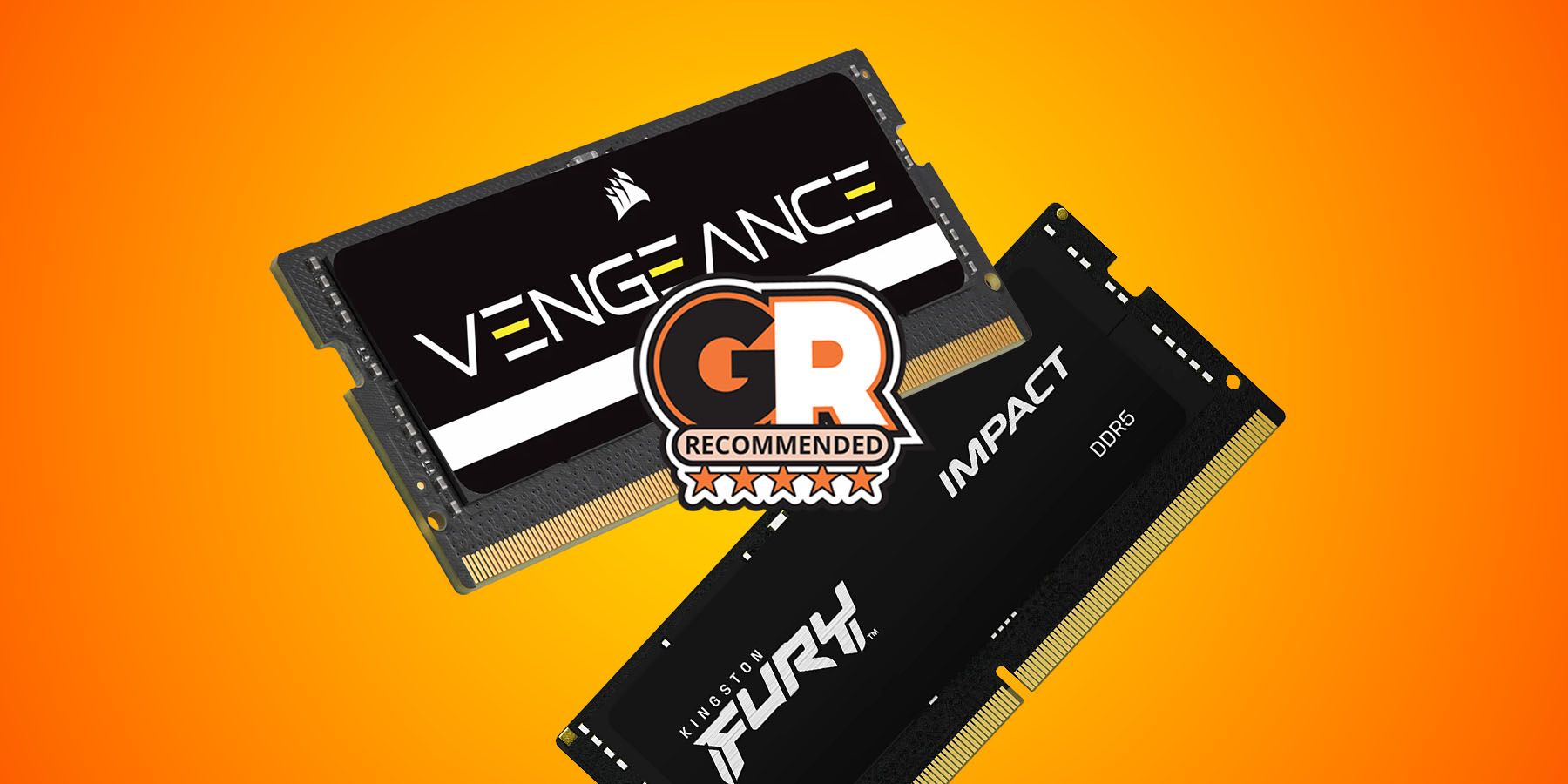
Best DDR5 RAM for Gaming Laptops In 2024
A stable RAM is among the prerequisites for a gaming laptop, and this guide includes the best of the best in the DDR5 class.
The storage drive is another underrated yet crucial component that not only facilitates the space for storing games and other data but also speeds up access to them. In the past, when the storage drive was primarily mechanical (i.e. hard drives), the effect on games wasn't too obvious, but with the arrival of Solid State Drives (SSDs), it became clear that if the storage drive has several times faster sequential Read and Write speed, the apps, OS, and games will open up quicker.
Currently, the fastest storage drive is the M.2 NVMe SSD, which is somewhat comparable to a system RAM module in size but is drastically faster than the 2.5-inch SSDs. When installing games, make sure you have enough space to store multiple games apart from the OS and basic apps. 256GB SSD space is the bare minimum we recommend for any gaming laptop, but higher will always be beneficial if you don't want to uninstall a game for another one.
Keep in mind that the OS and some basic apps can easily consume over 100GB of storage space, leaving less space for your data and games. 512GB of storage will be quite sufficient for a while, but laptops generally have the option to add or replace the storage drive to have more storage area.
Minimum Specifications for 1080p Gaming
The majority of budget and mid-range laptops come with a 15-17 inch screen size and a resolution of either FHD(1080p) or FHD+ (1200p). This is currently the most popular resolution, even on gaming monitors, because pushing the performance to higher levels is much easier than on higher resolutions.
1080p laptops are also affordable and don't require a premium configuration to push the frame rate over 30 or 60 if you are looking for buttery smooth gameplay. If you are trying to find the best gaming laptop for 1080p gaming, here are the minimum specs you should look for: get a quad-core or a hexa-core CPU with hyperthreading if possible. Currently, it's much easier to find a high-core count CPU for under $1000. Gaming laptops such as Acer Nitro V offer a Core i7 13620H processor that features 10 cores and 16 threads for under $900.
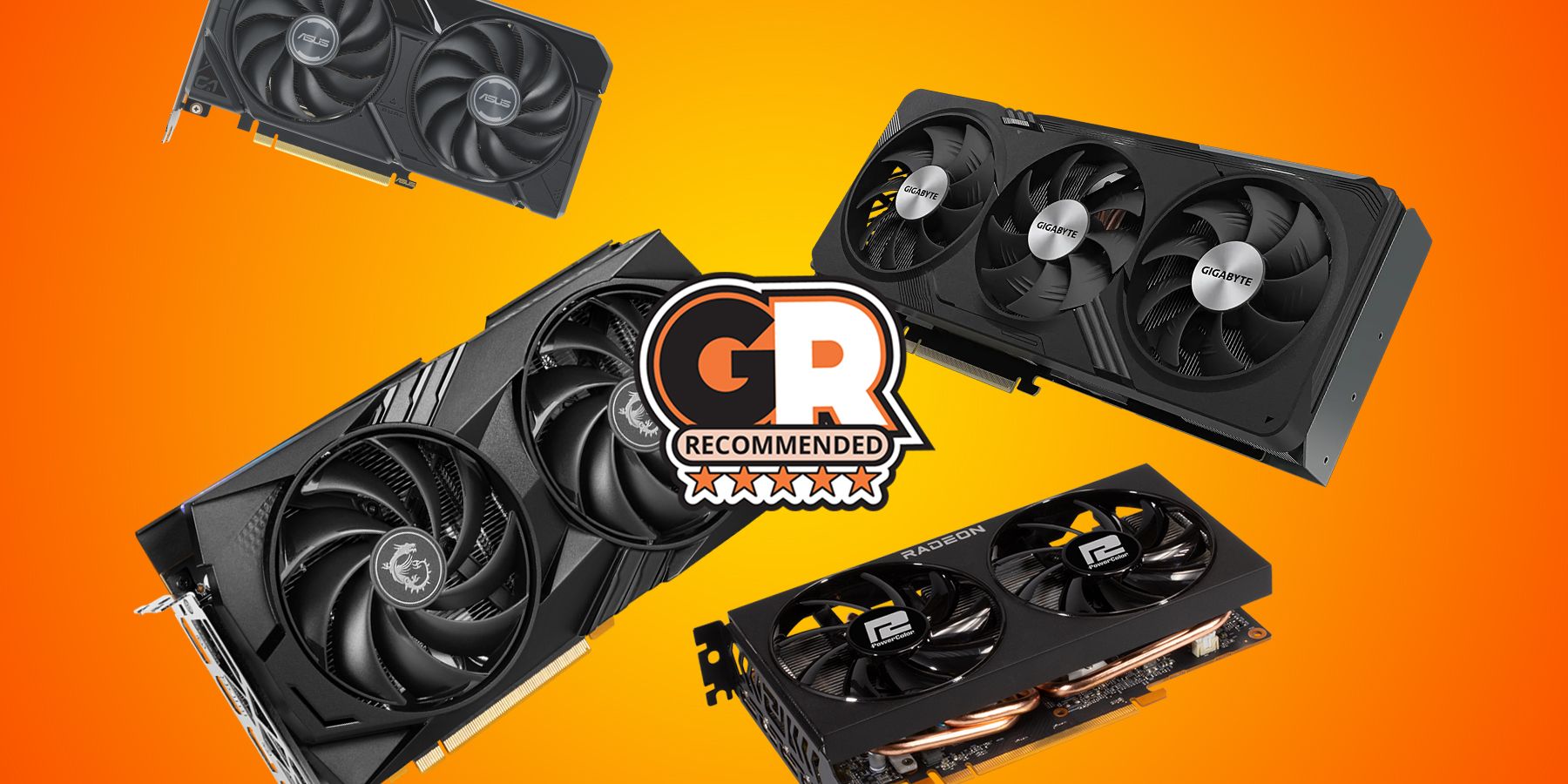
The Best GPUs for 1080p Gaming in 2024
If you are looking to max out visual quality in your favorite games, these are some incredibly good GPUs for 1080p gaming.
If you are on a tighter budget, look for processors like the Intel Core i5 12500H/13500H. For AMD lovers, the Ryzen 5 7535HS is an excellent 6-core, 12-thread CPU with decent Radeon 660M graphics. Laptops like the HP Victus 15 come with a decent configuration, like Ryzen 7535HS with an RTX 2050 for playable frame rates, and has 32GB of RAM, and a big 2TB of storage space.
As for the GPU, go for at least an RTX 3050 or higher if your budget is under $800, but if you can afford a $1000-$1200 laptop, an RTX 4050 or 4060 will do the job convincingly. In case you have a budget even lower than $700, a powerful APU will suffice for your gaming requirements on medium settings. APUs such as Ryzen 7840HS and Intel Core Ultra 7 155H are excellent choices for 1080p gaming.
Minimum Specifications for 1440p Gaming
QHD or 2560x1440p resolution is much more demanding than it might seem. QHD resolution boasts 1.7X more pixels than FHD and that means you can't just opt for any entry-level GPU thinking that modern titles can reach the 60 fps mark. Still, if you don't aim for 60 fps but are fine with 40 to 50 fps, it's recommended to go with the RTX 4050 at the minimum. In case you want to go over 60 fps on high settings, the RTX 4060 is the best candidate. It's not only decent in modern titles but can very well max out eSports titles at 1440p resolution.
Remember that the RTX 4060 on a laptop is not as weak as you would expect with other higher-end ADA models. As per Jarrod's Tech's comprehensive testing, the RTX 4060 is equivalent to the desktop variant or sometimes performs even better at 1440p, but gets outperformed at 1080p resolution. Therefore, the RTX 4060 is the best possible budget laptop GPU for 1440p gaming, unless you want over 60 fps on ultra settings in intensive titles like Call of Duty: Modern Warfare II or Cyberpunk 2077. We recommend getting the Acer Nitro 16 gaming laptop that is available for a little over $1100 but has excellent specs and aesthetics.
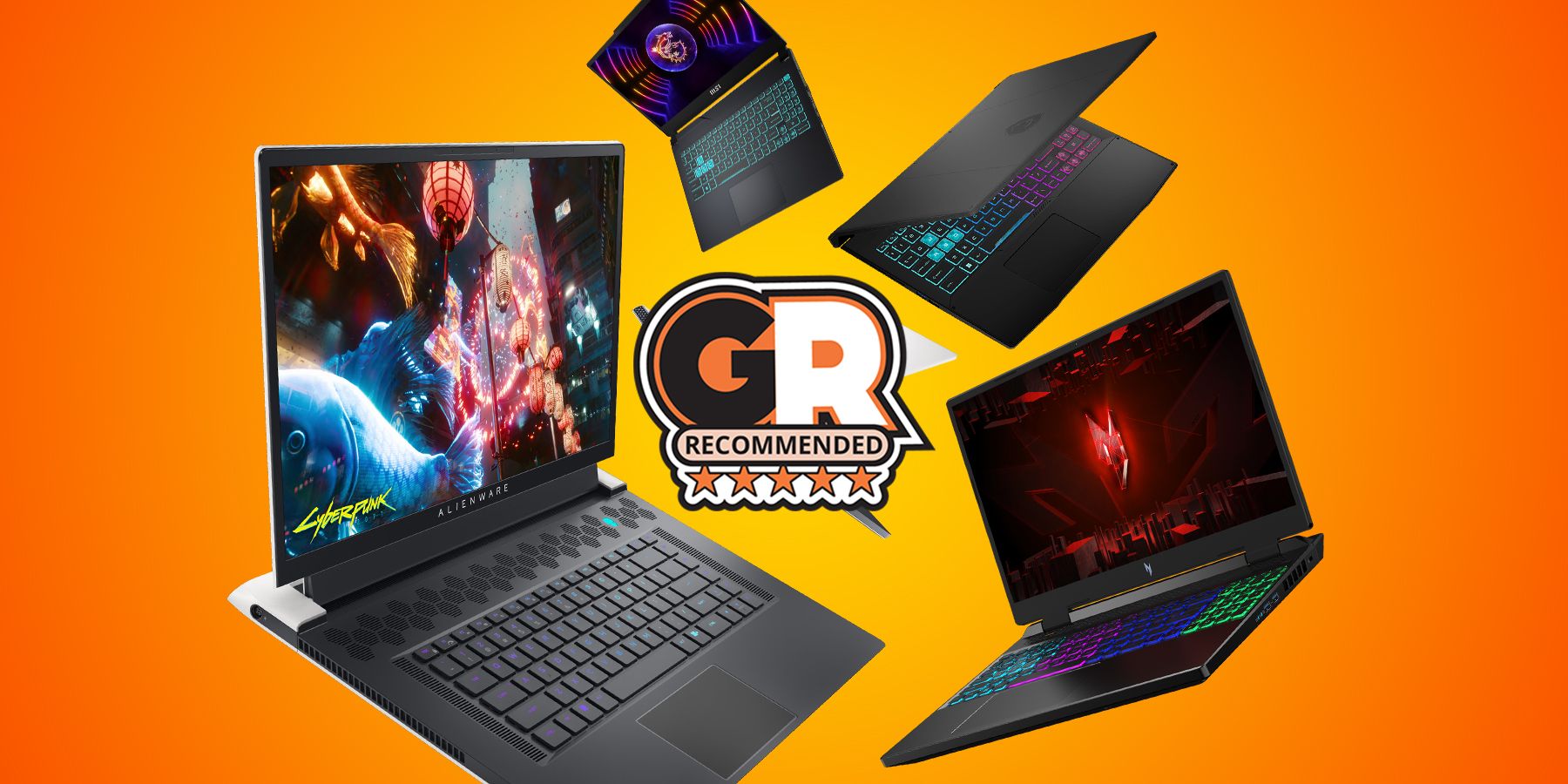
Best Gaming Laptops under $2000 in 2024
Explore gaming laptops under $2000 that promise power and performance without breaking the bank.
In case you are looking for a consistent 60 fps performance, we recommend the RTX 4070, which is 10-15% faster than the RTX 4060 laptop GPU. The performance difference isn't as high as you would see comparing the desktop variants of both GPUs, but the difference will be quite visible as you go from 40 to 55 fps at 1440p. Of course, there are exceptions where the RTX 4070 struggles to maintain the 60 fps mark, but overall, it's the best-case scenario.
Remember that there are a lot of 1440p gaming laptops that come with a high refresh rate display just like 1080p gaming laptops, but it's not possible to touch the 100+ fps mark unless you are playing moderately intensive titles or eSports games. The Acer Predator Triton 14 gaming/creator laptop is one of the most affordable gaming laptops with RTX 4070 and offers a 250Hz display if you seek the best value for money.
As for other hardware, it's not much of a big deal because, for over $1000, it's easier to find an octa-core CPU or even higher with hyperthreading enabled. System RAM shouldn't be any lower than 16GB and the storage size should be at least 512GB.
Minimum Specifications for 4K Gaming
Pushing the frame rate over 60 at 4K resolution on a laptop isn't easy at all. Unfortunately, the higher-end GPUs on laptops are considerably weaker than their desktop counterparts. Except for the RTX 4060, the RTX 4070, 4080, and 4090 all use a different die than on their desktop versions. Not only does it cut the specs like Cuda Cores, RT, and Tensor Cores of these GPUs significantly, but the limited TDP, lower VRAM size, and lower clock speeds further throttle their gaming performance.
However, premium 4K gaming laptops still exist as they offer richer and sharper image quality. Moreover, they are incredibly good at crunching numbers and executing intensive CPU operations via Extreme Performance CPUs such as Intel Core i9 14900HX and Ryzen 9 7945HX. By no means will you need those flagship CPUs for gaming, because even the Core i7 and Ryzen 7 processors from the latest Intel 14th gen and AMD Zen 4 lineup will do the job quite convincingly.

The Best 4K Gaming Monitors in 2024
Here are some of the best high-resolution gaming monitors money can buy in 2024.
What's more important is the choice of GPU. Unfortunately, even with GPUs like RTX 4080, you will be limited to 30-40 fps in many modern titles at 4K on ultra settings. The only way to achieve 60 fps is to lower the settings or turn on DLSS 3 Frame Generation. Yes, you can definitely play at 4K with the 4080 if you just want the games to run properly, but when you are spending over $2000 or even over $3000 on such a laptop, it's better to invest in something like the Razer Blade 16. It comes with an RTX 4090, which is around 10% faster.
Still, the 4090 isn't quite there even for the 4K gaming experience, and it's one of the reasons why we recommend sticking to 1440p gaming on laptops at the moment.
Conclusion
Gaming laptops used to be a compromise in the past, but they have come a long way, improving not only the hardware but also connectivity, battery life, and display quality. While the minimum specifications to play games on a laptop are fairly equivalent to the desktop, it's mostly for 1080p resolution. When you switch to 1440p or 4K resolution, the laptop hardware, particularly the GPU, starts to undermine performance, since laptops have limited space to fit a desktop-caliber GPU.
-
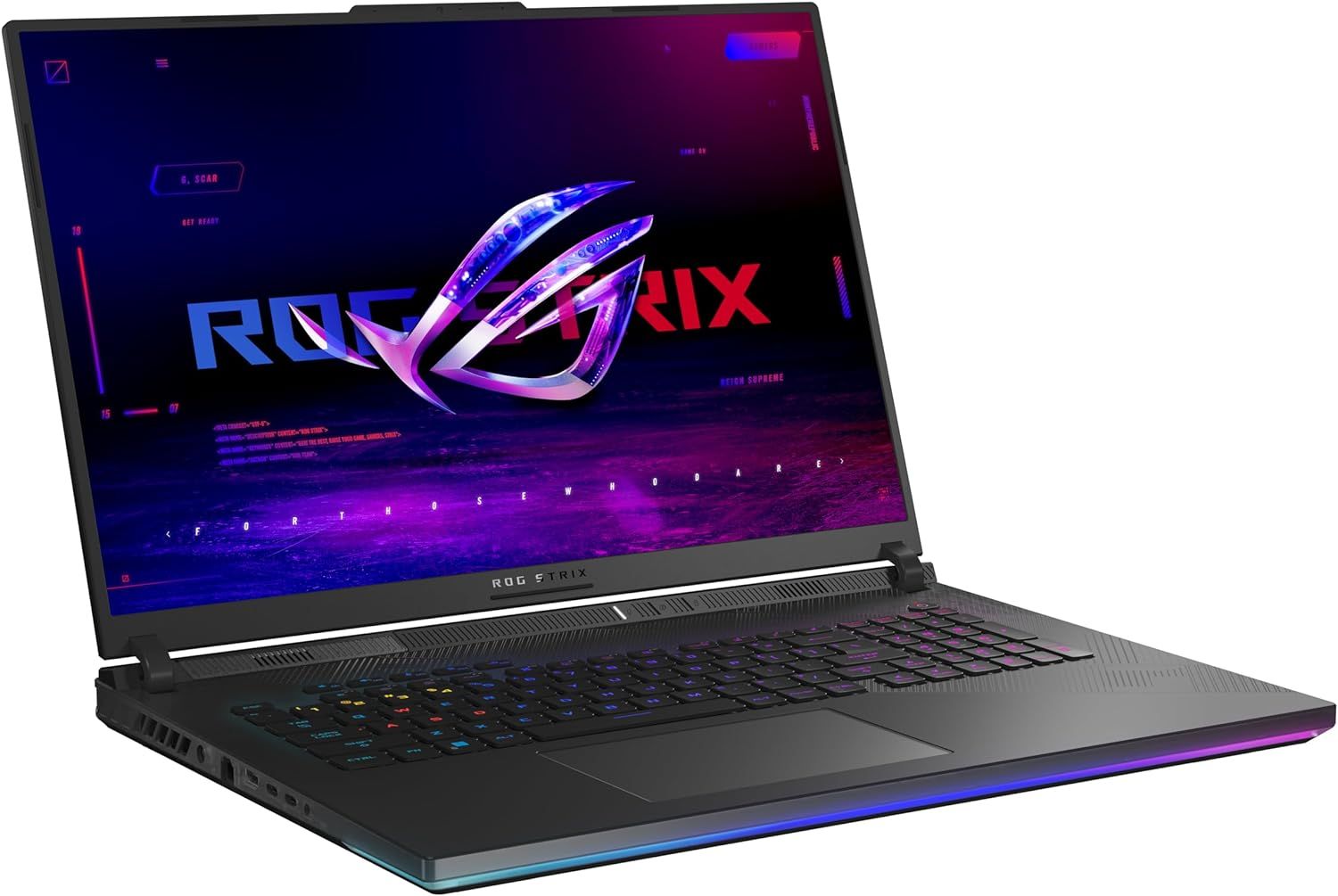
ASUS ROG Strix Scar 18 (2024) Gaming Laptop
The ASUS ROG Strix Scar 18 Gaming Laptop is a newer 2024 model of ASUS's successful Scar lineup that pairs Intel's latest 24-core Core i9 CPU with Nvidia's fastest GPU to date, the RTX 4090. With an excellent 18-inch 2.5K display that boasts a high peak brightness as part of ASUS's Nebula offerings as well as a high 240 Hz refresh rate, the Scar 18 offers plenty of power under the hood. In addition to this, it also has built-in lighting on the laptop itself that offers software control via ASUS's Aura Sync.
-
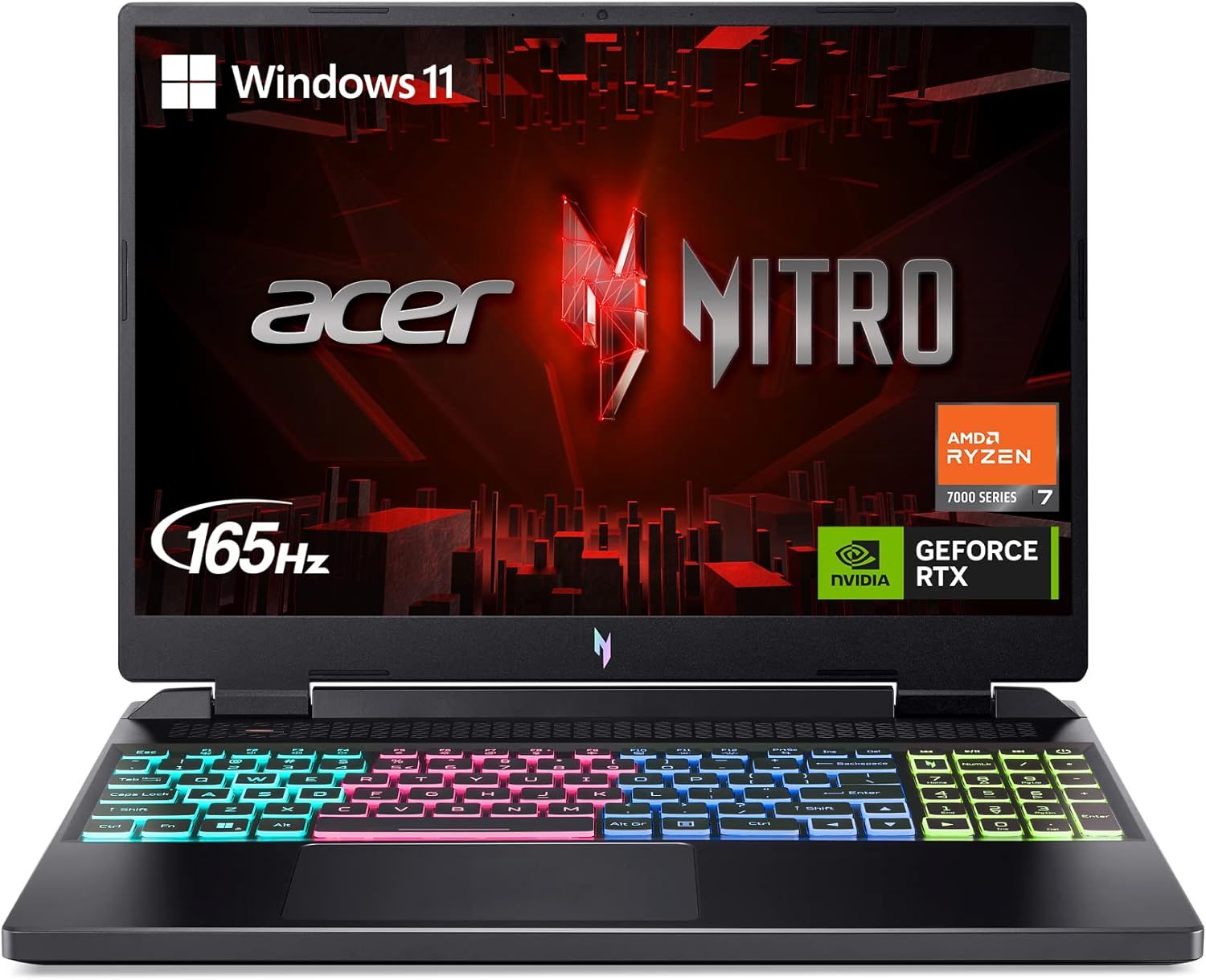
Acer Nitro 16 Gaming Laptop
$1090 $1400 Save $310Acer Nitro 16 Gaming Laptop brings a perfect configuration for gaming at 1080p that can play most titles on ultra settings. The latest Ryzen APU combined with the RTX 4060 GPU helps it achieve high fps numbers that provide a smooth gaming experience on its 16" display. The bezel-less screen, thin body, and RGB-backlit keyboard further add to its aesthetics.
-
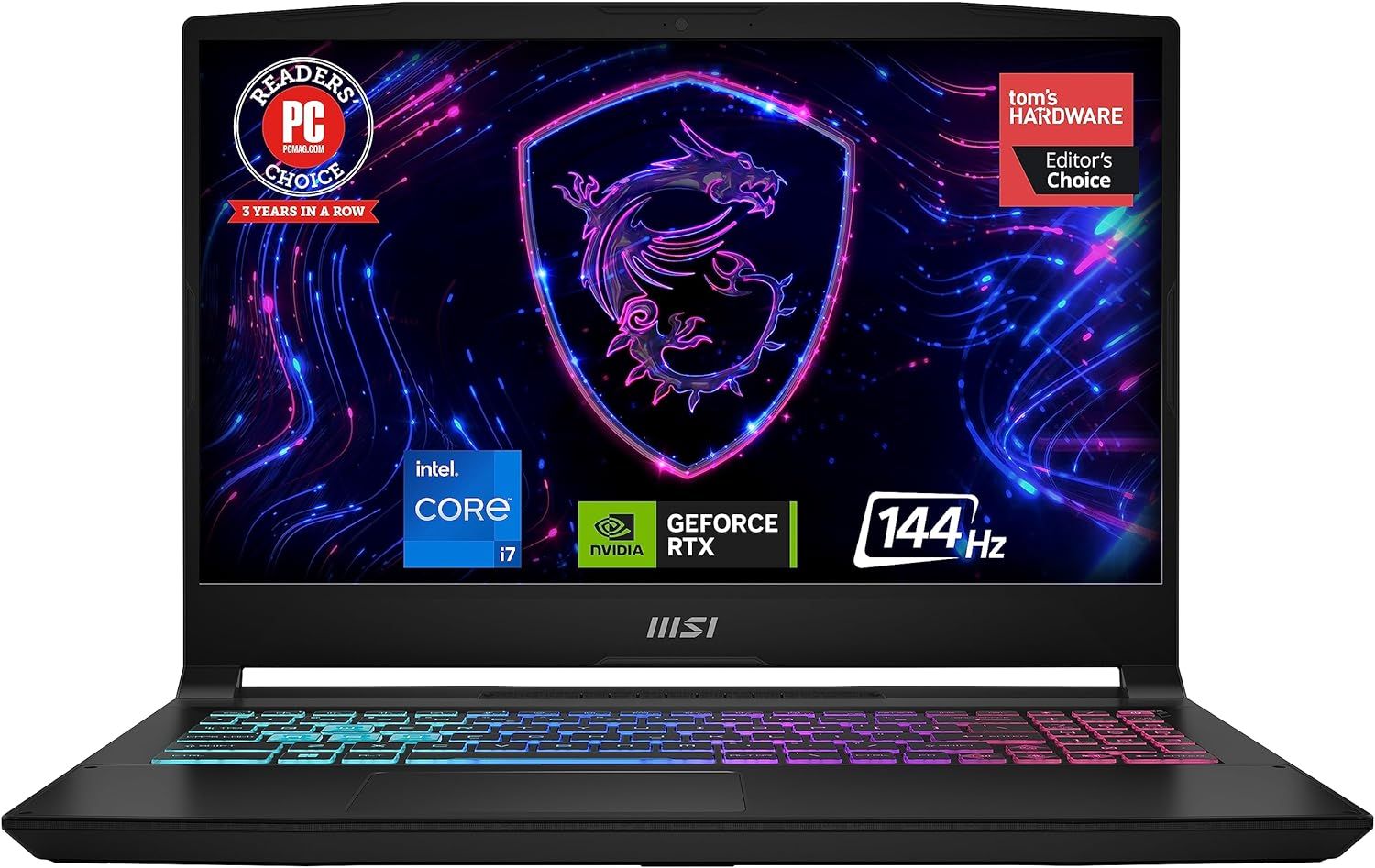
MSI Katana 15 15.6" 144Hz FHD Gaming Laptop
The MSI Katana is an excellent budget-centric high-end gaming laptop that outperforms most of the high-end laptops in its price bracket while maintaining an efficient, value-for-money approach to offer the latest and greatest in PC hardware to its audience.
FAQ
Q: What specs do I need for a gaming laptop?
The specs you need depend on the resolution you want to play at and the games you want to run on it. We recommend getting a quad or hexa-core processor, a 4GB GPU from the latest generation, and 8GB RAM at the minimum if you want to play at decent frame rates.
Q: Is 8GB okay for a gaming laptop?
Yes, 8GB is going to be fine in most cases, but 16GB is more future-proof and eliminates bottlenecks at higher resolutions.
Q: Is the i7 better than the i5 on a laptop?
Core i7 processors provide more cores and threads than the Core i5 CPUs, considering that we keep the the generation same. Therefore, Core i7s excel in productivity and multitasking overall.

